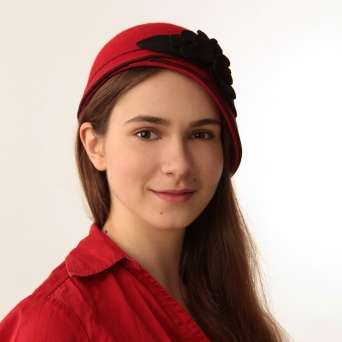I have seen productions of Tchaikovsky’s Eugene Onegin that were brightly colored and productions in bleak grays. I have seen 1820s settings and contemporary settings. One thing has been consistent: the opera is the story of Onegin’s and Tatyana’s mistimed passions for each other. Krzysztof Warlikowski’s staging for the Bayerische Staatsoper works from a different premise: Onegin is gay. It’s an interesting and coherent concept – presumably inspired by Tchaikovsky’s own homosexuality – and there are moments when it makes the drama onstage wonderfully novel and exciting, but too often it fights the music and the text.
The action takes place in the early 1970s. Bell-bottom trousers and big hair abound, and everyone dances the twist to the catchy tune of “Uzh kak po mostu, mostochku”. The first half includes some strange touches. Onegin’s stiff mannerisms and terrible fashion choices left me wondering what a romantic dreamer like Tatyana could possibly see in him. The amateur male strippers at Tatyana’s name day celebration are bizarre. At the party, Lensky seems more upset by Onegin’s womanizing than by Olga’s coquettishness.
The concept only becomes obvious before the duel, when we see Lensky and Onegin wake up in the same bed. The duel involves just one gun, placed on the pillow between Lensky and Onegin. Each magnanimously gestures for the other to take it, and neither will. Finally, an exasperated Lensky begins undressing and approaching Onegin. Onegin panics and shoots his friend point-blank. As the music for the ball begins, Onegin sees half-naked cowboys dancing, making out, and giving each other blow jobs. He turns the gun on himself, only to have it plucked from his hand by a maid. When Onegin sees Tatyana again, he feels something, perhaps vanity or nostalgia. His declaration that he is finally in (straight) love is hollow, a self-delusion. He is awkward when he confronts Tatyana, never sure where to put his hands and eventually resorts to violence to prevent her from leaving. She slaps him, and he ends the opera alone, ashamed of her rejection and of his identity.
The cast was excellent, with their few difficulties arising from the staging. Alisa Kolosova (Olga) impressed me early on with the size and resonance of her voice, as well as her spot-on cutesy and carefree persona. She contrasted wonderfully with Kristine Opolais’ moody and introspective Tatyana. Opolais’ awkwardness when Tatyana first meets Onegin (and ends up sandwiched between Olga and Lensky for their tender exchanges) was very funny. Her acting got a tad aimless in the letter scene – as she moves from writing on paper to singing into a tape recording to gesturing into thin air, it wasn’t clear what motivated each change of thought. Vocally, she delivered a nuanced performance with rich tone and expressive choices. The horrible stiffness of Michael Nagy’s Onegin bothered me, but that was clearly a directorial choice, and he should be commended for his commitment to an unusual and difficult concept of his character. His voice suited the role well, sounding always solid though never overwhelmingly impressive.
Among the men, Günther Groissböck was the surprise stand-out of the evening, nearly stealing the show with Prince Gremin’s “Lyubi vsye vozrasti pokorni”. His voice created a wall of sound, with flawless legato and textures that ranged from booming to crackling. He had to deliver the lyrics about age with his tongue in his cheek, though, as he is quite as young and attractive as Onegin! In contrast, Alexey Dolgov’s delivery of Lensky’s “Kuda, kuda” was underwhelming. He is a strong tenor with exciting top notes, but he seemed thrown by the ambiguous interpretive spin he was trying to give the words. (Onegin seems to be the ‘friend of his heart’ whose ‘husband’ he is.) Finally, Alexander Kaimbacher provided some much-needed comic relief as Triquet, with an overly nasal tone and hammy rock-star mannerisms.
The Bayerische Staatsorchester sounded fabulous under the baton of Andriy Yurkevych, with especially lush textures from the string and brass sections. The Staatsoper Chorus also navigated their many, varied numbers in Act I well, showing off a well-blended, deep sound. Special mention goes to Gintaras Vysniauskas, who sang the solo bits of the first peasant chorus in a clear and ringing voice.
Warlokowski’s take on the opera is bold, and it makes the Lensky—Onegin relationship exciting and moving. However, so much of the first and third acts focus on Tatyana that the opera loses a lot if her passion seems ungrounded (and unreturned, whatever lies Onegin may tell himself). The singers’ strong voices and committed acting weren’t quite enough to fight the dramatic impulses of the text and music. This production holds together and provokes thought, but it doesn’t entirely convince.




